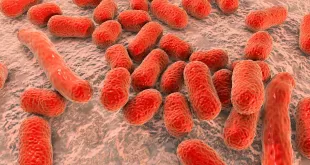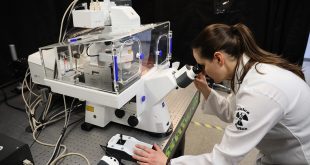Funding helping to advance study of rare genetic diseases
By Sean Tarry
When it comes to the study of rare genetic diseases, related research is often considered by those within the field of life sciences as high-risk, high-reward. And, although the pay-off that might result from making a breakthrough or discovery with respect to rare genetic diseases might be lucrative, most see the risk associated with it – most often the potential financial loss that’s linked with the high-risk study – as preventative. However, researchers at the University of Manitoba and the Children’s Hospital Research Institute of Manitoba were recently granted $250,000 in order to advance cutting-edge three-dimensional bioprinting technology in their quest to develop patient-specific heart models of people living with rare genetic diseases.
The financial award, which will be delivered over the course of a two-year period, is support from the Government of Canada’s New Frontiers in Research Fund (NFRF) – Exploration stream – a fund that has been especially dedicated to investing in high-risk, high-reward research in an attempt to support and encourage leading-edge innovation.
Multidisciplinary team
The incredible project – one which presents so much promise – is being led by Dr. Adrian West, a bioengineer and assistant professor in physiology and pathophysiology at the University of Manitoba. And, Dr. West’s research team, one of a real multidisciplinary variety, consists of Dr. Joseph Gordon, associate professor of nursing, and Dr. Brad Doble, associate professor of pediatrics and child health (cross-appointed in biochemistry and medical genetics), each from the Rady Faculty of Health Sciences. The team also received additional support from collaborating professionals with an expertise in rare metabolic diseases.
Improving lives
The type of work that’s being undertaken by Dr. West and his team is incredibly important, and is significant in the quest to find new treatments that can help improve the lives of nearly three million Canadians who suffer from an estimated 7,000 or so known rare diseases. In addition to improving the lives of so many people and their families, discovery in these areas help to lift the troublesome economic and social burden that results from such a long list of sufferers. And, it lends much needed research to the study of rare heart disease, given the fact that heart tissue samples from rare disease patients are incredibly scarce, limiting the understanding that clinicians have of the changes, both metabolic and functional, that lead to heart failure.
Better understanding of rare diseases
As a means to rectify this gap in knowledge, Dr. West and his team will endeavour to work with rare heart disease patients, replicating their unique tissue cells within 3D bioprinted structures. It’s an innovation and groundbreaking research that will be made available to other laboratories in order to gain input and insights from as many professionals and disciplines as possible, supporting the team’s attempt to better understand these rare diseases and discover enhanced treatments to improve the lives of people living with them
The NFRF 2022 Exploration competition is funding 128 research projects that are bringing disciplines together in novel ways to form bold, innovative perspectives. The competition is administered by the Tri-agency Institutional Programs Secretariat on behalf of Canada’s three research granting agencies: the Social Sciences and Humanities Research Council, the Canadian Institutes of Health Research and the Natural Sciences and Engineering Research Council.
 BioLab Business Magazine Together, we reach farther into the Canadian Science community
BioLab Business Magazine Together, we reach farther into the Canadian Science community





